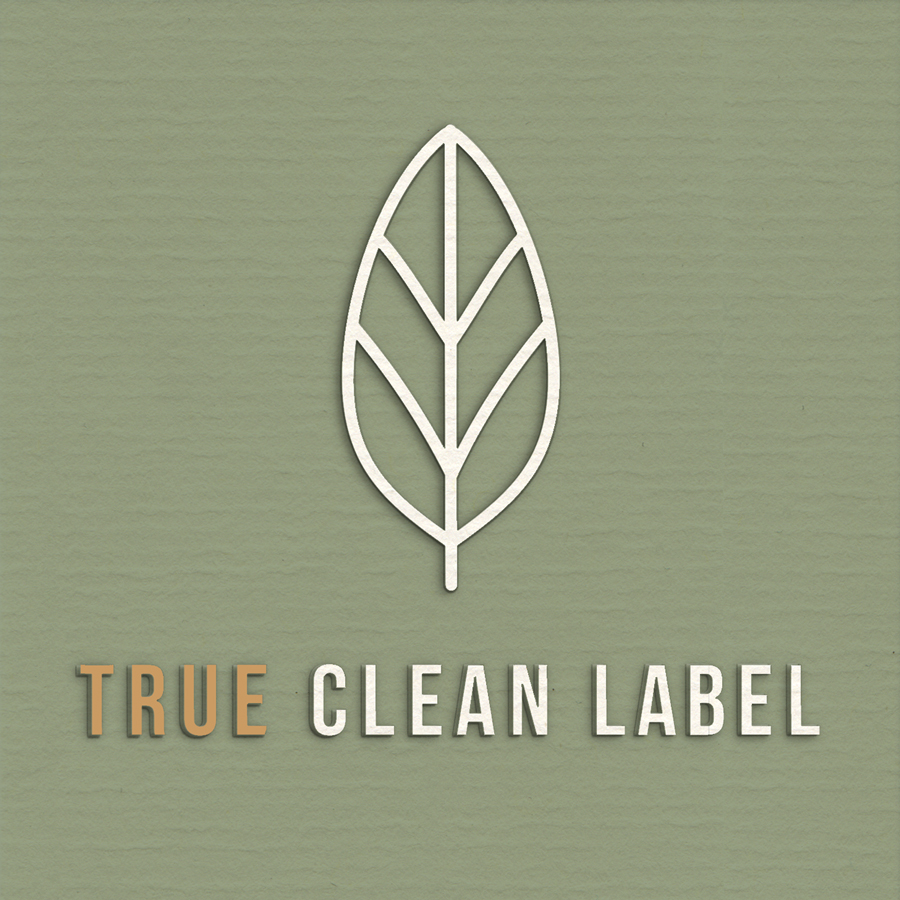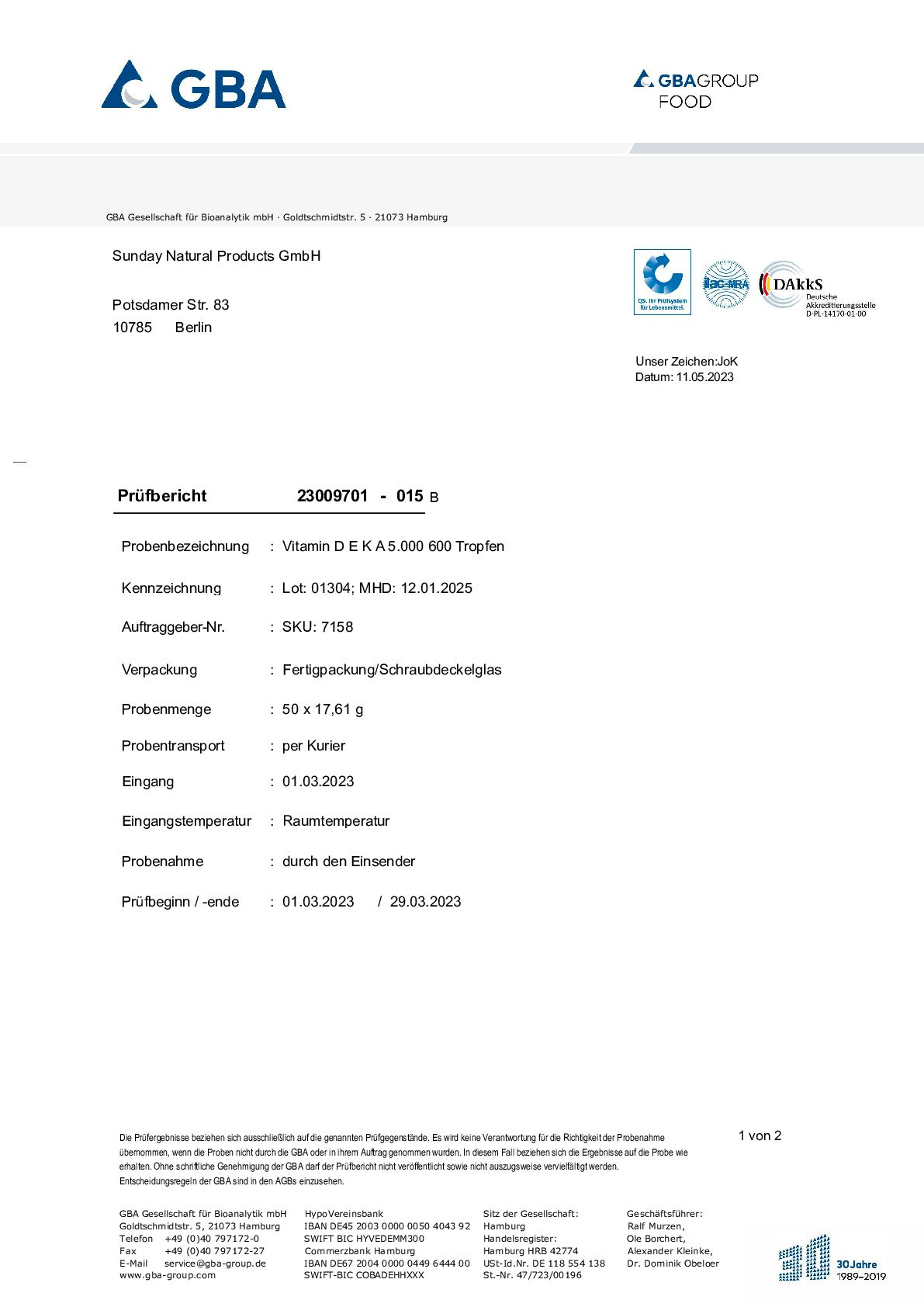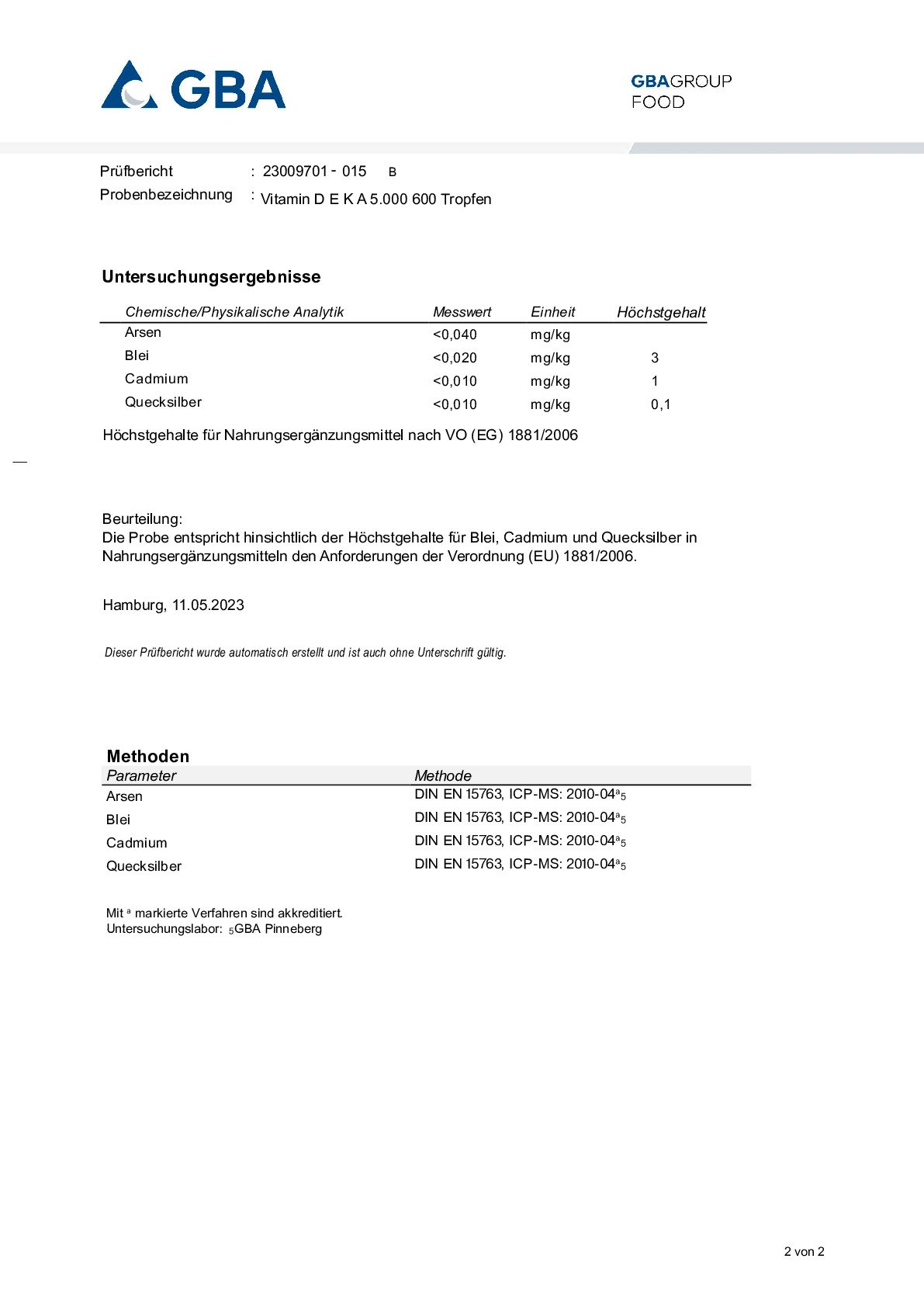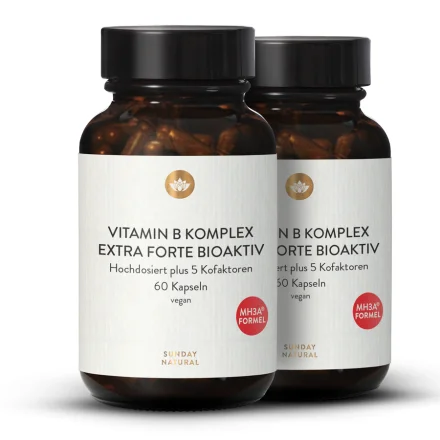Vitamin D
Vitamin D3 is found almost exclusively in animal products, namely meat, dairy and eggs. Lichens also contain vitamin D, as do various fungi. The latter, however, only contain the less effective vitamin D2.
Vitamin D is a very peculiar vitamin. In the classical sense it is not a vitamin but rather a pro-hormone. Vitamin D is scarcely found in food; instead, the body produces it in the skin given sufficient exposure to sunlight. It then gets converted in the body to an important hormone which regulates cell functioning and bodily processes. Dependant on a sufficient supply of vitamin D, almost all cells of the body have special receptors for this vitamin D–derived hormone.
Vitamin D is still being intensively researched. New mechanisms of action of this fascinating vitamin are discovered almost every year.
Bioactive Alpha-Tocopherol
Vitamin E is a group of 8 different compounds: 4 tocopherols and 4 tocotrienols, each distinguished by the prefix alpha, beta, gamma or delta.
Of all forms of vitamin E, alpha-tocopherol has the highest bioactivity. It is also the only form recognised as fulfilling vitamin E requirements in humans; all other forms of vitamin E are measured against alpha-tocopherol.
The molecule alpha-tocopherol occurs in several geometric variants. Natural alpha-tocopherol always takes the form of RRR-alpha-tocopherol (formerly referred to as D-alpha-tocopherol), and only this form exhibits the desired biological effects on the body. Synthetic vitamin E, typically a combination of various isomers, is less bioavailable and bioactive. Our liquid multivitamin drops provide only natural, bioactive RRR-alpha-tocopherol.
Vitamin K
Vitamin K occurs naturally in the forms of vitamin K1 (phylloquinone) and vitamin K2 (menaquinone). Phylloquinone is mainly found in plants, while menaquinone, which appears to be more active, can be produced by gut bacteria; some fermented foods, such as sauerkraut or nattō, are rich sources of vitamin K2.
Vitamin K2 activates a series of special proteins which play a role in important metabolic processes, including blood clotting as well as calcium transportation and utilisation. Most organisations do not consider vitamin K1 and K2 separately and, as such, there is limited information on the benefits of vitamin K2 specifically.
Original K2VITAL® - Vitamin K2 MK-7 All-Trans from Norway
Vitamin K2 MK-7 is today considered by far the most effective form of K2. However, since vitamin K2 molecules occur in a variety chemical structures (the so-called cis–trans isomers of vitamin K2), there are considerable differences in efficacy even between different vitamin K2 MK-7 compounds. It is believed that only the trans forms can be utilised by the body.
Original K2VITAL® vitamin K2 from Norway is one of the few active ingredients on the market which can guarantee that the stated vitamin K2 content consists of 100% highly effective all-trans MK-7, verified by Norwegian laboratory testing.
Vitamin K2 and Vitamin D
Vitamin D and vitamin K2 both play key roles in calcium metabolism. Together, they regulate the cells which form and break down bones as well as the important transport molecules which ensure the correct utilisation of calcium.
Vitamin A
Vitamin A is a fat-soluble vitamin which controls several important functions in the body. While it's well-known for its importance in maintaining good vision, vitamin A also has numerous other benefits: it contributes to the normal function of skin and mucous membranes in the mouth, nose, intestines and reproductive organs, supports the immune system and works synergistically with iron in the synthesis of red blood cells.
Health Benefits of Vitamin D, E, K and A, according to the European Food Safey Authority (EFSA):
Vitamin D contributes to:
- Normal absorption and utilisation of calcium and phosphorus
- Normal calcium levels in the blood
- The maintenance of bones
- The maintenance of normal muscle function
- The maintenance of healthy teeth
- Normal immune system functioning
- Cell division
Vitamin E contributes to:
- The protection of cells against oxidative stress
Vitamin K contributes to:
- Normal blood clotting
- The maintenance of normal bones
Vitamin A contributes to:
- The maintenance of normal vision
- Normal iron metabolism
- Normal immune system functioning
- The maintenance of normal skin
- The maintenance of normal mucous membranes
- Cell specialisation


























